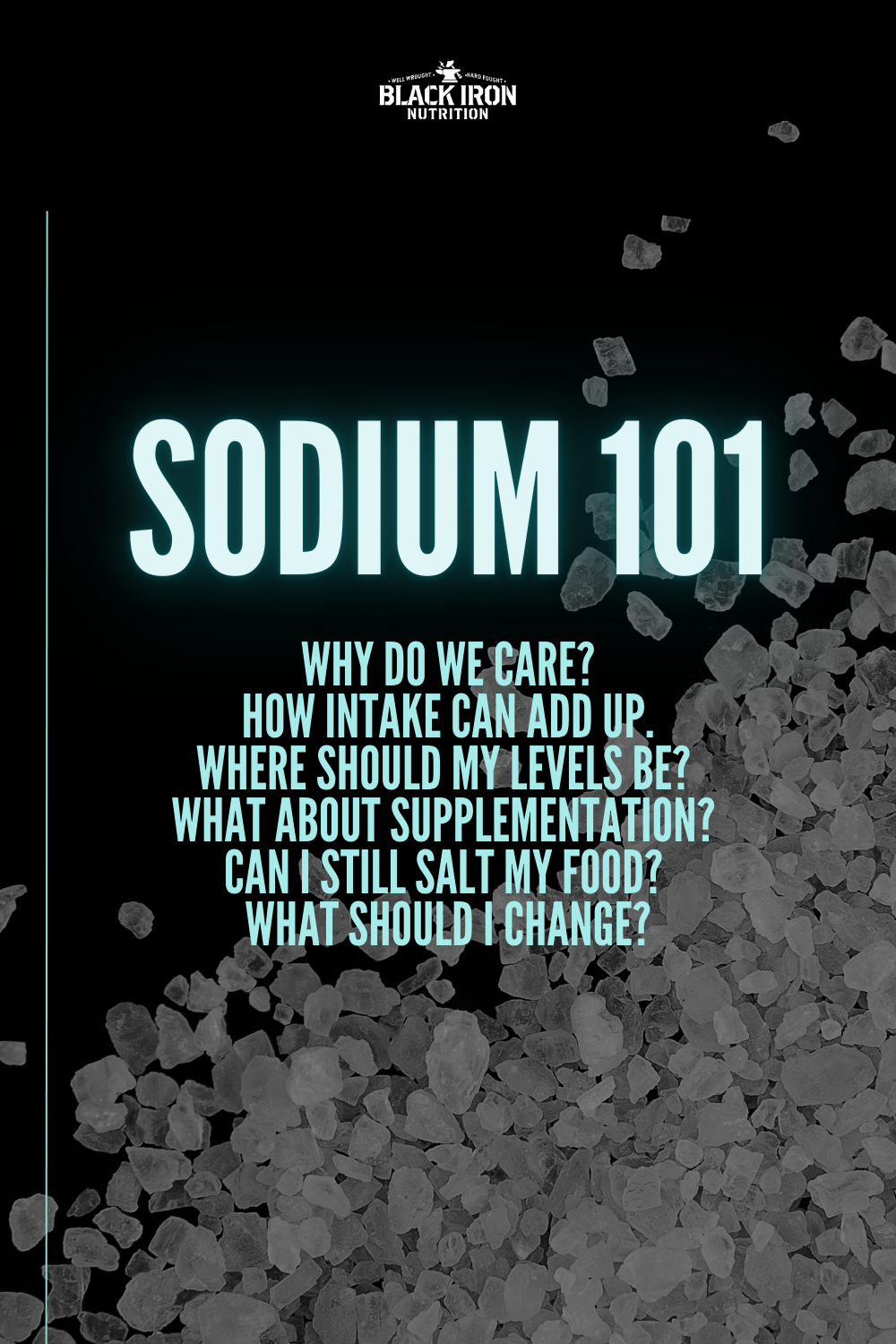Sodium 101
Why do we care?
Too much sodium in your blood means that your body is working extra hard to dilute the sodium content by pulling in excess water. This causes your blood volume to increase, which increases blood pressure. Chronically high blood pressure can lead to your risk of heart disease, stroke, or other complications.
How our intake can add up.
Sodium is a popular food preservative. Our typical American diet of packaged, convenience foods means that we're usually well over the recommended intake. Consuming items with a longer shelf life (like pop tarts or frozen chicken nuggets) can add up over the course of your day.
Where should my levels be?
If your typical training is an hour or less, we're usually looking for a 1:1 ratio of calories to sodium (ex. eating 2200 calories warrants 2200mg of sodium). However, based on your location, the time of year, your training, your current diet phase, or other health considerations, this number can be more individualized.
What about supplementation?
Calcium, magnesium, potassium, and sodium all work together to help with muscle contraction and blood pressure. Most electrolyte supplements are a blend of the above, not JUST sodium. This blend helps replenish the performance-electrolytes lost through sweating or high exertion.
Can I still salt me food?
There is a distinction between salt and sodium, and while salt does CONTAIN sodium, seasoning your food is probably not why your levels might be high. Take a look at the sodium content in the labeling of your common food items - we often recommend that our clients take note of anything over 300mg per serving.
What should I change?
Focus on using a majority of single-ingredient food items to compile your meals (ex. a potato is JUST a potato), and aim for a variety of fruits and vegetables throughout your day. This might also not be an appropriate concept for you to tackle right now - consider the basics of your nutrition routine FIRST, and these smaller improvements to food quality may happen naturally.
Written by: Morgan Voz, Black Iron Nutrition Coach
Remember that everyone’s situation is unique and individual nutrition recommendations will vary. If you want to delve into these concepts further and find an individualized approach, working 1:1 with a coach is always a great option.

